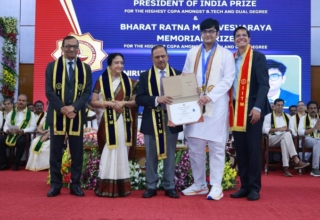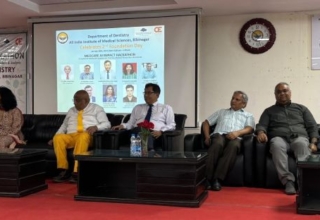
By Aruna Singh
Blood bank technology and clinical lab technology have significant roles in the medical sector. With advancing healthcare technologies, the role of medical technologies has a crucial role to play. However, youngsters have limited knowledge of the growing job opportunities in this sector. Doctors make their decisions about diagnosis and treatment based on the laboratory test results. It is the responsibility of the medical technologist to provide accurate and precise data. Blood bank technicians are usually trained as phlebotomists and they work with patients to collect various settings, blood and labeling. The technicians usually work in medical laboratories and blood banks where they store blood of the donors for transmission. Apart from this, they make sure that the type of blood and the collected blood is safe and also examines the level of healthy molecules in the blood. National Skills Development Corporation (NSDC) offers a course in Blood Bank technology, and one can look at several options after finishing the course. The technicians can also work start their own venture, through the Prime Minister’s Skill India Mission.
Nature of Work
Most of the blood bank technicians work in hospital laboratories and independent blood banks. Examining the donor’s blood, analyzing the type of blood, and particularly identifying the safety of the blood is important for any technician. Apart from this, the technicians are also expected to maintain a record. Any discrepancy in the maintenance of record can lead to severe confusion amounting to change in the line of treatment by the doctors. Those aspiring to pursue a career in this field must have the flexibility to work independently and should also have good analytical skills, besides sharp management skills.
Course and Qualifications
The diploma and certificate course for blood bank technology is required to be passed from any recognized institute that is approved from accredited Board after passing 12th class. The duration of the course is 1 – 2 years (the duration of the course varies in each institute). Most of the courses give stress on practical training, along with the theoretical knowledge of human physiology and biochemistry. The practical training offers them hands-on experience to test the types of blood samples, aberrations, and every essential factor related to blood is explained. They are also taught how to deal with the situation of emergency or any kind of disaster during the course. After the successful completion of the course, one can also opt for government jobs, by applying for government posts through Staff Selection Commission. The main aim of the Diploma in Blood Bank Technology (DBBT) course is to train students on blood bank technology and turn them into skilled technicians to manage and work under pressure.
Opportunities
After taking the diploma in this course, every state will open many new job opportunities in the government and non-government sectors. Apart from this, the candidate can also work in private hospitals or private laboratories. There is a requirement of blood bank technicians as there is a scarcity of trained staff in most medical labs. Several major pharma companies have set up their own laboratories and banks in most cities. However, they are still unable to manage it accurately only because of the lack of experienced and trained technicians. Both private and government hospitals need a well-equipped blood bank that is managed by seasoned staff.
Requirement
Those who are planning to enter in this industry need to have the following qualities: Carry out routine laboratory tests by using Standard Operating Procedures such as keeping the details of blood group (forward and reveres), cross match and comb’s (direct & indirect) etc. Check the expiry dates of stock and working reagents, blood and blood components have knowledge of the temperature of reagent, blood bank, and deep freezers. Are we giving proper education to our students? A look at the prominent job portals will reveal a big number of vacancies for blood bank technicians. Aspiring students should be careful to pick an institute that should have well-equipped laboratories and experienced faculty. The programme should offer elaborate information on blood, components, collection, separation, preservation, storage, donation and transfusion of the blood.
Scope of Research
The field of the medical technologist is fast growing. However, there is very limited research work going on in this sector. After diploma and certification in blood bank, blood transfusion and laboratory technicians, one must look at higher education including research.
Major Institutes
Delhi Paramedical and Management Institute, New Delhi
www.dpmiindia.com
Maharishi Markandeshwar University, Ambala, Haryana
www.mmumullana.org
Shivalik Institute of Paramedical Technology, Chandigarh
www.shivalikinstitute.org
Indian Medical Institute of Nursing, Jalandhar, Punjab
www.iminursing.in
Author is Principal, Delhi Paramedical and Management Institute, New Delhi
www.dpmiindia.com









